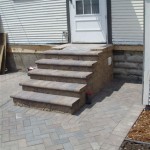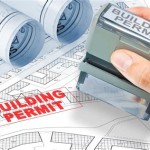How Thick Should A Gravel Patio Be?
When installing a gravel patio, determining the appropriate thickness is crucial for ensuring its durability, functionality, and aesthetic appeal. The thickness of the gravel layer plays a significant role in various aspects, such as drainage, stability, and frost resistance. Here's a comprehensive guide to help you determine the optimal thickness for your gravel patio:
Base Layer Thickness:
The base layer is the foundation of your gravel patio and typically consists of compacted crushed stone or gravel. Its thickness ranges from 4 to 8 inches, depending on the expected weight and traffic it will bear. A thicker base layer is recommended for heavier structures or high-traffic areas.
Gravel Layer Thickness:
The gravel layer is the visible surface of your patio and provides drainage and stability. The recommended thickness for the gravel layer is between 2 and 4 inches. A thinner layer may result in instability and potential tripping hazards, while a thicker layer can restrict drainage and make the patio less comfortable to walk on.
Edging Thickness:
Edging is an essential component of a gravel patio, as it helps contain the gravel and prevents it from spreading. The thickness of the edging should be at least 4 inches to provide adequate support and prevent gravel displacement.
Frost Protection:
In regions with freezing temperatures, additional measures are needed to protect the gravel patio from frost heave. A layer of washed sand or crushed stone, approximately 6 inches thick, can be placed underneath the base layer to prevent frost penetration and subsequent damage.
Drainage Considerations:
Proper drainage is crucial for the longevity of your gravel patio. The base layer should be compacted to create a slight slope away from any structures or areas where water could accumulate. The gravel layer should also be loose enough to allow water to percolate through it, reducing the risk of erosion.
Foot Traffic and Weight Capacity:
The thickness of your gravel patio should be tailored to the expected foot traffic and weight capacity. For light foot traffic and occasional use, the recommended thickness range is sufficient. However, for heavy machinery or frequent use, a thicker base layer and gravel layer may be necessary to ensure stability and prevent compaction.
Other Factors to Consider:
Additional factors that may influence the thickness of your gravel patio include: -

What You Need To Know Before Creating A Pea Gravel Patio

How To Build A Pea Gravel Patio Farmhouse On Boone

How To Make A Pea Gravel Patio In Weekend The Handyman S Daughter

Pea Gravel Patio Depths Installation Maintenance

How To Build A Pea Gravel Patio Farmhouse On Boone

Pea Gravel Patio Pros And Cons The Happy Housie

Diy Pea Gravel Patio Tour Pine And Prospect Home

Redeeming Hampton Diy Pea Gravel Patio For Under 200

Diy Pea Gravel Patio Lowe S

Diy Pea Gravel Patio Tour Pine And Prospect Home
See Also








